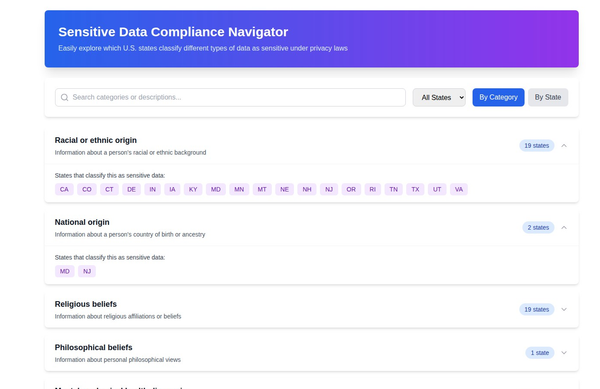The UK’s New Cyber Security and Resilience Bill – A Key Step Toward Enhanced National Cyber-Defenses

The incoming British government has unveiled a significant step in its strategy to enhance the nation’s cyber-resilience with the announcement of the Cyber Security and Resilience Bill. Officially cited in the King’s Speech on July 17, this legislation marks the UK’s commitment to bolstering its defenses against an increasingly complex and dangerous cyber threat landscape. With critical infrastructure, digital services, and supply chains at the heart of the legislation, the bill aims to protect essential sectors of the economy from both domestic and foreign cyberattacks.

This article will explore the key features of the new bill, its impact on the existing NIS Regulations 2018, and how it fits into the broader UK strategy to safeguard its digital infrastructure against future threats.
A Continuation of the NIS Directive
The Cyber Security and Resilience Bill builds upon the existing NIS Regulations 2018, which stemmed from the EU’s original Network and Information Systems (NIS) Directive. The NIS Regulations established a framework for ensuring the security of essential services in critical sectors such as healthcare, transport, energy, and digital infrastructure, imposing obligations on operators of essential services to manage cybersecurity risks and report incidents.
With the UK no longer part of the European Union, the introduction of this new bill signals the government’s intention to create an independent regulatory framework that goes beyond the existing EU legislation. The bill introduces several new elements aimed at strengthening the UK’s digital defenses, including mandatory reporting for ransomware incidents and an extended scope to cover more digital services.
Expanding the Scope of the NIS Framework
One of the most significant features of the Cyber Security and Resilience Bill is its focus on expanding the scope of the NIS regime to include more types of digital service providers and extend cybersecurity protections further down the supply chain.
As Stuart Davey, a partner at law firm Pinsent Masons, explained, “The proposed reforms were focused on expanding the scope of NIS to other types of digital service providers and emphasizing the importance of supply chain cyber management.” These reforms aim to address the rising threat that cyberattacks pose not only to large, well-established organizations but also to the smaller businesses and third-party vendors that form critical links in national and global supply chains.
Supply chain attacks have become one of the most prevalent and damaging forms of cyberattacks in recent years. Hackers exploit weaknesses in third-party vendors to gain access to larger targets, often resulting in devastating consequences for both the primary target and its partners. By expanding the NIS regime to encompass more digital services and supply chains, the new bill seeks to close these vulnerabilities and enhance the overall resilience of the UK’s digital infrastructure.
Mandatory Ransomware Reporting
A key element of the new legislation is the introduction of mandatory ransomware reporting. Ransomware attacks have surged in recent years, with cybercriminals targeting critical sectors such as healthcare, education, and government. The UK government has recognized the need for a clearer picture of the scale and impact of these attacks to effectively counter the growing threat.
By requiring organizations to report ransomware incidents, the bill will provide authorities with greater visibility into the frequency and severity of such attacks. This information will enable better coordination of response efforts and allow law enforcement agencies to track and disrupt cybercriminal operations more effectively.
The focus on ransomware is timely, given recent high-profile attacks on UK infrastructure, including a major ransomware breach that hit an NHS supplier, leading to the cancellation of thousands of appointments and operations. As ransomware attackers continue to evolve their tactics, the need for greater transparency and regulatory oversight has become increasingly urgent.
Heightened Cyber Threats from Foreign Actors
The timing of the Cyber Security and Resilience Bill is critical. It comes in the wake of growing concerns over the cyber capabilities of foreign adversaries, particularly China and Russia. The UK National Cyber Security Centre (NCSC) has issued public warnings about the potential for state-sponsored cyberattacks from these countries, raising alarms over the vulnerability of critical infrastructure.
In recent years, both Russia and China have been implicated in sophisticated cyber campaigns that target not only governments but also private industry. These actors are often involved in cyber espionage, intellectual property theft, and infrastructure sabotage, posing a significant threat to national security. The new bill, by tightening regulations and increasing the scope of cyber defenses, represents a direct response to these heightened threats.
Critical Infrastructure in Focus
One of the key focuses of the Cyber Security and Resilience Bill is the protection of critical infrastructure. The government has cited recent cyberattacks affecting the NHS and the Ministry of Defence as a driving force behind the bill’s introduction. These high-profile breaches have underscored the vulnerability of essential services to cyberattacks and the potential for far-reaching consequences when critical systems are disrupted.
The new legislation aims to extend the protections offered by the NIS regime to a wider range of digital services that are crucial to the operation of national infrastructure. By doing so, the government hopes to create a more resilient digital ecosystem that can better withstand and recover from cyberattacks.
Strengthening Regulatory Powers
Another important aspect of the bill is the enhancement of regulatory powers. The government plans to grant new powers to regulators, enabling them to enforce the new cybersecurity requirements more effectively. This includes the ability to impose stricter penalties on organizations that fail to comply with the new regulations.
The expanded powers for regulators will ensure that there is greater accountability for businesses, particularly those operating in critical sectors. This push for stricter enforcement aligns with the government’s broader strategy to position the UK as a global leader in cybersecurity and digital resilience.
A Boost for Economic Growth
Beyond cybersecurity, the bill is also being framed as a key element in the government’s broader efforts to boost economic growth. As Martin Greenfield, CEO of Quod Orbis, explained, “Without proactive and cohesive cybersecurity strategies, businesses will struggle to achieve sustained economic growth.”
The bill represents an opportunity for businesses to enhance their cybersecurity posture, protect their operations, and ensure continuity in the face of cyber threats. By making cybersecurity a priority, the government is signaling to the global market that the UK is a safe and stable place to conduct business in an increasingly volatile digital world.
The bill’s emphasis on supply chain security, in particular, will be crucial for businesses that rely on complex and interdependent global supply networks. As cyberattacks on supply chains increase, organizations that can demonstrate strong cybersecurity practices will be better positioned to attract international partners and investors.
The Role of the Digital Information and Smart Data Bill
In addition to the Cyber Security and Resilience Bill, the government has also introduced the Digital Information and Smart Data Bill, which incorporates elements of the Data Protection and Digital Information Bill—a proposed update to the UK GDPR that did not pass during the last parliament. This separate bill will aim to modernize the UK’s data protection laws and facilitate the safe and efficient use of digital information.
Together, these two bills represent a comprehensive strategy for enhancing the security and resilience of the UK’s digital infrastructure, while also fostering innovation and growth in the digital economy.
Conclusion: A Stronger, More Resilient UK
The introduction of the Cyber Security and Resilience Bill marks a critical step forward in the UK’s efforts to strengthen its cybersecurity posture in an era of increasing digital threats. By expanding the scope of the NIS Regulations, introducing mandatory ransomware reporting, and enhancing regulatory powers, the government is taking bold action to protect critical infrastructure and digital services from cyberattacks.
As the global cyber threat landscape continues to evolve, this new legislation will play a pivotal role in safeguarding the UK’s national security, economic stability, and digital future. Organizations across the country must now prepare to comply with the new regulations, adopt more robust cybersecurity practices, and contribute to a more secure and resilient digital ecosystem.






